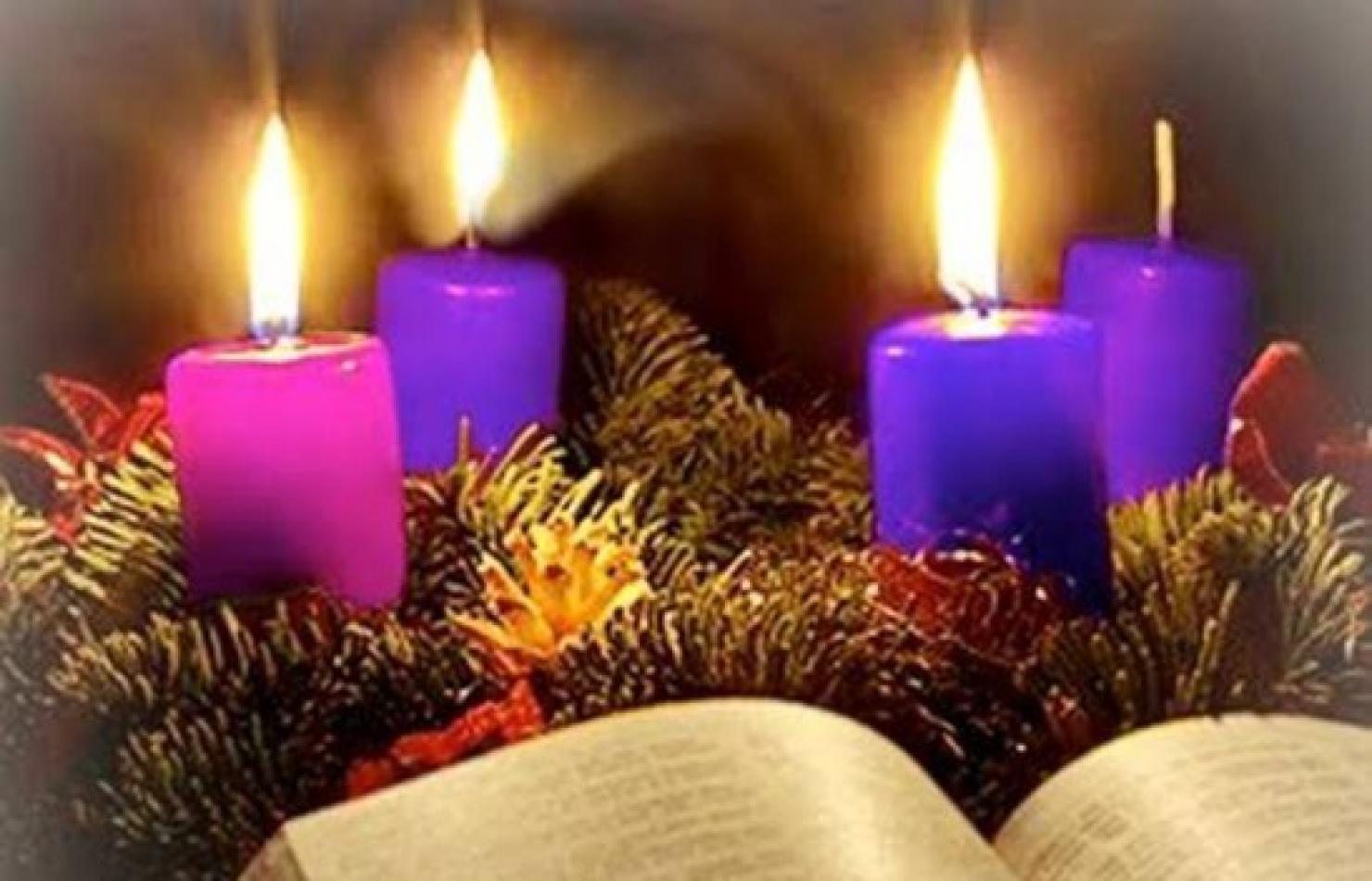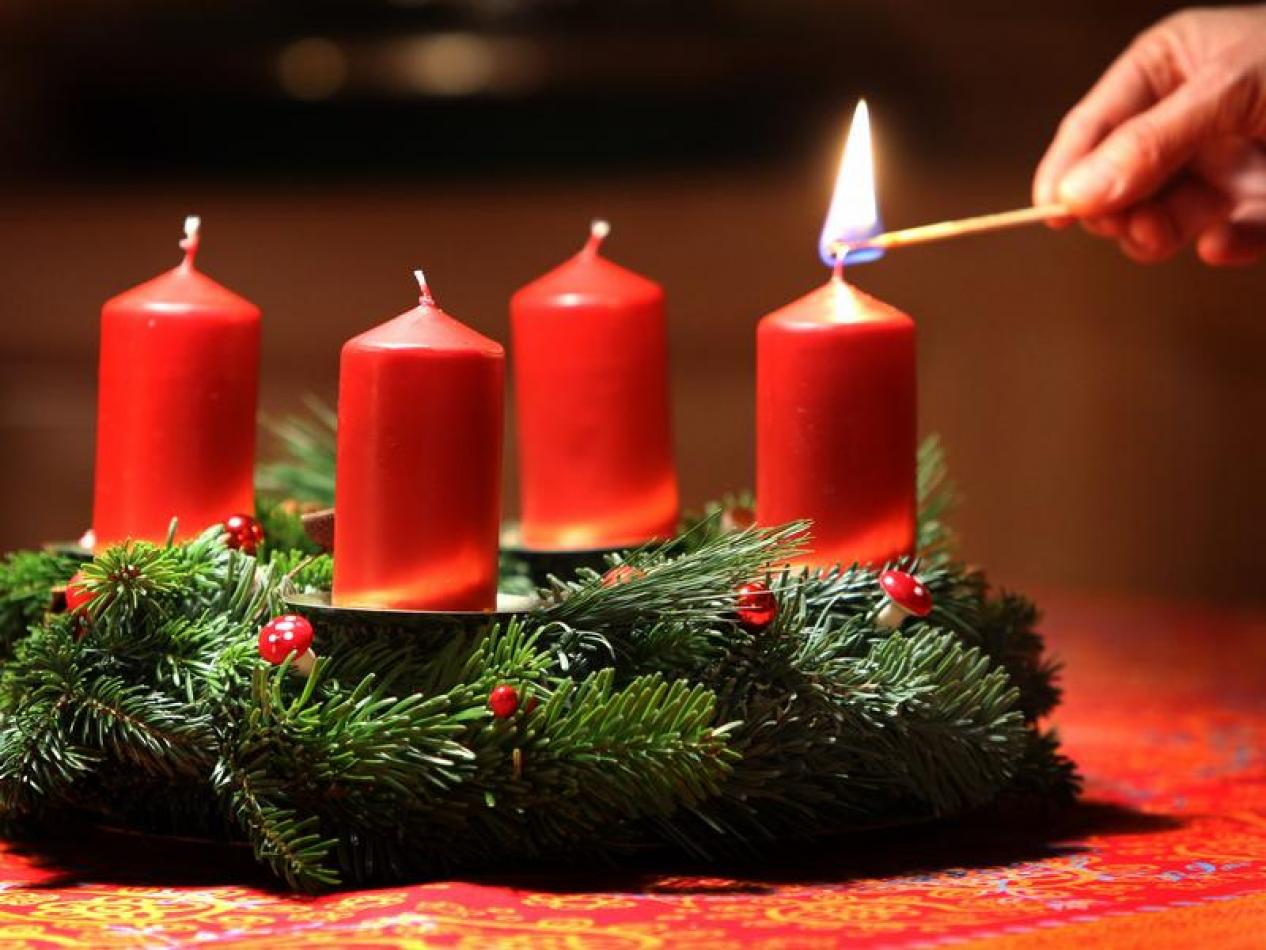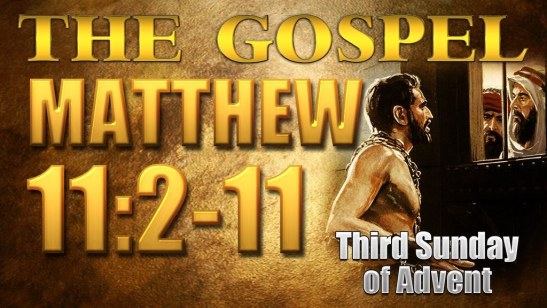Daniel Comboni
Comboni Missionaries
Institutional area
Other links
Newsletter
Even in the prison of Maqueronte, where he’s locked up by Antipas, news of Jesus reaches the Baptist. What he hears is disturbing. It doesn’t respond to his expectations. He awaits a Messiah who prevails with the terrible power of God’s judgment, saving those who welcomed his baptism, and condemning those who have rejected it. Who is Jesus?
Matthew 11:2-11
JESUS’ IDENTITY
Even in the prison of Maqueronte, where he’s locked up by Antipas, news of Jesus reaches the Baptist. What he hears is disturbing. It doesn’t respond to his expectations. He awaits a Messiah who prevails with the terrible power of God’s judgment, saving those who welcomed his baptism, and condemning those who have rejected it. Who is Jesus?
To resolve his doubts, he charges two of his disciples to ask Jesus about his true identity: «Are you the one who is to come or are we to expect someone else?». The question was decisive in the first days of Christianity.
Jesus’ answer isn’t theoretical, but very concrete and precise: tell John «what you hear and see». They’re asking him about his identity, and Jesus answers them with his healing action serving the sick, the poor, and the unfortunate who he meets throughout the villages of Galilee, without resources or hope for a better life: «the blind see again, and the lame walk, those suffering from virulent skin-diseases are cleansed, and the deaf hear, the dead are raised to life and the good news is proclaimed to the por».
In order to get to know Jesus, what’s best is to see who are around him and to what he is dedicated. In order to capture well his identity it’s not enough to confess theoretically that he is the Messiah, the Son of God. It’s necessary to focus on his way of being Messiah, that is nothing less than alleviating suffering, healing life and opening up a horizon of hope for the poor.
Jesus knows that his answer can disappoint those who dream of a powerful Messiah. That’s why he adds: «Blessed is anyone who does not find me a cause of falling». Let no one wait for another Messiah doing any other kinds of «works»; let no one invent another Christ more to our liking, since the Son has been sent to make life more dignified and happy for everyone, until reaching its fullness in the final celebration of the Father.
What Messiah do we Christians follow today? Do we dedicate ourselves to do «the works» that Jesus did? And if we don’t do them, what are we doing in the midst of our world? What do people «see and hear» in Jesus’ Church? What do they see in our lives? What do they hear in our words?
José Antonio Pagola
Translator: Fr. Jay VonHandorf
https://www.feadulta.com
The Baptist Invited to be Converted
It’s not easy to recognize God’s Messiah. Educated by the prophets, Israel has been waiting for centuries. When he came, even the more spiritually prepared and well-disposed persons struggled to recognize and to welcome him. The Baptist also remained indecisive.
But a messiah who does not surprise, or arouse wonder and disbelief, cannot come from God. It would be too consistent with our logic and our expectation. God thinks differently from us.
In the first part of today’s Gospel (vv. 2-6) a doubt that arose in the mind of the precursor, and the answer given by Jesus are presented.
John is in prison and the reason is narrated in Mt 14:1-12. He denounced the immoral behavior of Herod who took his brother’s wife. Josephus Flavius wrote that John was locked up in the Machaerian fortress. He was treated with respect and could receive visits from the disciples. He was eager to witness to the coming of the Kingdom of God. He kept himself informed on how Jesus of Nazareth, who he singled out as the Messiah, was behaving.
However, his faith begins to waver. Some say that the doubts are not John’s, but his disciples’. That is not so. From the Gospel, it comes out that he himself doubted if Jesus was the Messiah. For this reason, he sent his disciples to ask Jesus: “Are you the one who must come, or do we have to wait for another?” (v. 3).
How did these perplexities come to him?
The answer is quite simple. It is enough to keep in mind the image of a messiah John had learned since the beginning from the spiritual leaders of his people.
He is in prison and is conscious of what the prophets have foretold. He has been expecting the “liberator” (Is 61:1), the person in charge of restoring justice and truth in the world. He does not understand why Jesus did not decide to intervene in his favor.
John awaits a strict judge, a messiah who rails against the wicked. Here, we have a surprise instead. Not only does Jesus not condemn sinners, he even eats with them and takes pride in being their friend (Lk 7:34). He recommends not the quenching of the dimly burning wick, but taking care of the “bruised reed.” He does not destroy anything but recovers and repairs what is ruined. He does not burn sinners but changes their hearts and wants them to be happy at all costs. He has words of salvation for those who have lost all hope, and those avoided by all, like the lepers. He is not discouraged in the face of human problems. He does not give up even in death.
To the messengers of John the Baptist, Jesus is presented as the Messiah, listing the signs taken from the texts of Isaiah (Is 35:5-6; 26:19; 61:1), the prophet of hope, who had predicted, “On that day no one would complain: I am sickly.” (Is 33:24).
The Baptist is invited to take note of six new realities: the healing of the blind, the deaf, the leper, the crippled, the resurrection of the dead, and the proclamation of the Gospel to the poor. These are all signs of salvation, not of condemnation.
The new world has come: those who were walking in the dark and had lost the orientation of life are now enlightened by the Gospel. Whoever was crippled and could not move a step towards the Lord and towards their brothers and sisters can now walk quickly. Whoever was deaf to the Word of God, now listens and lets himself be guided by it. Whoever was ashamed of himself, of the leprosy of sin that kept him away from God and from their brothers and sisters, now feels cleansed. Whoever did only the dead work of self-righteousness, now fully lives his life. Whoever regarded himself miserable and hopeless has begun to listen to the good news: “There is salvation for you as well.”
The Messiah of God has nothing to do with the energetic and severe character that John had expected. His way of doing had scandalized the precursor and continues to shock us even today. There are, still, some who ask the Lord to intervene to punish the wicked. There are still some who interpret misfortunes as God’s punishment on those who have done evil. But can God be angry or feel pleasure in seeing His children (even if bad) suffer?
Jesus ends his answer with a beatitude, the tenth, found in the Gospel of Matthew: “Blessed is he who takes no offense at me.” What a sweet invitation to the Baptist to review his theological convictions.
A good God contradicts all the beliefs that John had. Like us, the Baptist also imagined a mighty God. Finding himself weak, he expected sensational interventions. However, the events continued to unfold as if the Messiah had not come.
Blessed is he who receives God just as God is, not as one would like God to be! Faith in the God who reveals Himself in Jesus cannot be but accompanied by doubt, uncertainty, and the inability to believe.
The Baptist is the figure of a true believer. He flounders in many perplexities, asks questions, but does not deny the Messiah because he does not match his own criteria. He calls into question his own beliefs.
He is not worried about who has trouble believing, who feels lost in front of the mystery and puzzles of existence, who says that he or she does not understand the thoughts and actions of God. He is worried about those who confuse one’s own beliefs with the truth of God, those who have ready answers to all questions, those who have always some dogma to impose, those who never allow themselves to be questioned: such a faith at times borders on fanaticism.
When the disciples of John left, Jesus pronounced his judgment on him with three rhetorical questions. It is the second part of today’s Gospel (vv. 7-11).
The answers to the first two are obvious: the Baptist is not like the reeds that grow along the Jordan, symbols of volatility because they bend according to the direction of the wind. John is not an opportunist who adapts to all situations and bows in front of the powers-that-be. On the contrary, he is one who is firmly opposed to the same political leaders, challenging the king head-on, and yet not afraid to say what he thinks.
John is not a corrupt man, who thinks about his own interests, accumulates money unscrupulously and squanders it on entertainment, and elegant and refined clothes. The corrupt—Jesus says—are the kings and their courtiers, the rich, the leaders who imprisoned him.
The third question requires a positive response: John is a prophet and indeed more than a prophet. No one in the Old Testament undertook a mission beyond his. More than Moses, he is an “angel” sent to precede the liberating coming of the Lord.
The final addition is significant: “The smallest in the kingdom of heaven is greater than him” (v. 11).
Jesus did not establish a ranked list based on personal holiness and perfection but calls to verify the superiority of the condition of the disciples. Whoever belongs to the kingdom of heaven is able to see far more than John the Baptist. Whoever captures the new face of God, whoever understands that the Messiah has come to him/her to forgive, to welcome, and to love him/her, has entered the new perspective; the perspective of God.
What we, today, can see and understand, regardless of our personal holiness is what the Baptist had only guessed because he remained at the threshold of the new era.
Fernando Armellini
Italian missionary and biblical scholar
https://sundaycommentaries.wordpress.com






